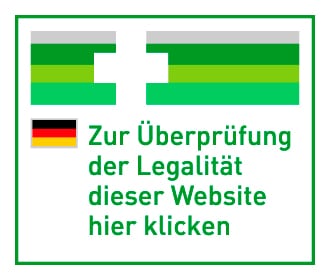Die EU Common List ist nach der BfArM-Liste sowie nach der jüngsten Liste des Paul Ehrlich Instituts die neueste Richtlinie zur Anerkennung sowie Erstattungsfähigkeit der Kosten von Corona-Testverfahren durch Apotheken. Sie dient einer einheitlichen Qualitätssicherung.
Paul Ehrlich Institut – bisherige Anforderungen an Covid-Tests
Das Paul Ehrlich Institut (PEI) löste die Liste des Bundesamts für Arzneimittel und Medizinprodukte ab. Sie entschied bisher über die Abrechnungsfähigkeit von Antigen-Schnelltests durch Apotheken. Anders als durch die neue Testverordnung beschlossen, spielten die Gesamtsensitivität und Dokumentationspflicht eine untergeordnete Rolle. Bisher waren auch Pooling- und Speicheltests zugelassen. Sie gehören zu den In-vitro-Diagnostika, deren Erstattung künftig nicht mehr vorgesehen ist.
Die neue Testverordnung soll auf diese Weise dazu beitragen, dass in Testzentren möglichst wenig falsch-positive und falsch-negative Ergebnisse zustandekommen und die Statistik verfälschen. Die Übergehung positiver Covid-Fälle, aber auch die Prävention überflüssiger weiterführender diagnostischer Maßnahmen bei negativen Fällen können so wesentlich reduziert werden.
EU Common List: Vorgaben an die Gesamtsensitivität
Die EU Common List sieht für symptomatische Patienten Tests mit einer Gesamtsensitivität von mindestens 80 Prozent vor. Für unabhängige Studien mit zufällig ausgewählten Probanden mit einem Ct von unter 25 ist sogar eine Gesamtsensitivität von mindestens 90 Prozent vorgeschrieben. Dies gilt auch für retrospektive (rückwirkende) In-vitro-Studien.
Die Common List der EU wurde gemeinsam von den EU-Staaten beschlossen. Die Tests der Liste werden in zwei Kategorien unterschieden:
• Kategorie A: durch prospektive klinische Studien bewertete Antigen-Tests
• Kategorie B: durch retrospektive In-vitro-Studien bewertete Tests
EU Common List: Das ändert sich bei Covid-Tests und Studien
Die EU Common List ist Dreh- und Angelpunkt der neuen Testverordnung. Für die Erstattung sind nun keine qualitativen Nachweise mehr erforderlich. Mindestkriterien und Evaluierung werden nicht mehr berücksichtigt, da Hersteller über die Prüfbescheinigung einer zugelassenen Stelle verfügen müssen. Bei der Prüfung ist der europäische Leitfaden der Koordinierungsgruppe Medizinprodukte (MDCG) relevant. Er bezieht sich auf die SARS-CoV2-Tests und die gültigen Spezifikationen.
Die neuen Kriterien für unabhängige Studien zur Validierung von Tests sind:
• Durchführung der Validierungsstudie durch ein unabhängiges Labor
• Durchführung der Validierungsstudie in mindestens einem Labor der 27 Mitgliedsstaaten der EU
• Beteiligung mindestens einer öffentlichen Einrichtung eines EU-Mitgliedsstaats
• prospektives klinisches Feldstudiendesign der Validierungsstudie
• Bewertung der Leistung auch durch retrospektives In-vitro-Studiendesign möglich
Zwar war auch bisher der Einsatz eines In-vitro-Diagnostikums vorgeschrieben, jedoch entfällt für den Anspruch auf Vergütung künftig die Auflistung der Tests in der Liste des BfArM. Die Common List der EU enthält nun ausschließlich Covid-Tests mit CE-Kennzeichnung. Die Ergebnisse müssen durch einen Rachen-, Nasen- oder Rachen-Nasen-Abstrich zustande gekommen sein. Nicht mehr in der EU Common List aufgeführt sind Tests, welche auf Sputum, Blut, Speichel oder Stuhl basieren. Ebenfalls ausgeschlossen sind gepoolte Antigen-Tests sowie Antigen-Schnelltests zur eigenständigen Anwendung.
Was ist die Sensitivität von Covid-Tests?
Sensitivität bezeichnet die Fähigkeit eines Covid-Tests, die Erkrankung von Betroffenen korrekt zu diagnostizieren. Bei einer Testsensitivität von 80 Prozent werden ebenso viele Patienten mit Infektion identifiziert (richtig-positiv), 20 Prozent der Gäste bleiben hingegen unerkannt (falsch-negativ).
Was ist die Spezifität von Covid-Tests?
Die Spezifität klinischer Tests bezeichnet die Fähigkeit von Corona-Tests, eine Erkrankung auszuschließen. Bei einer Testspezifität liegt der Anteil korrekt ausgeschlossener Erkrankungen bei 80 Prozent (richtig-negativ); der Anteil fälschlicherweise als krank identifizierten Personen (falsch-positiv) liegt bei 20 Prozent.
Fazit
Mit Inkrafttreten der neuen Testverordnung löst die EU Common List bisherige Verzeichnisse des Paul Ehrlich Instituts sowie des BfArM ab und sorgt für eine Vereinheitlichung der Diagnosequalität. Ausschließlich gelistete Tests sind künftig für Apotheken bis zu einem Betrag von 9,50 Euro erstattungsfähig. Die Richtlinien zur Beurteilung der Validität von Tests sind freilich etwas willkürlich, da auf Stuhl oder Blut basierende Test eine hohe Sensitivität sowie Spezifität aufweisen.
Auf www.vitalcarevisions.de bieten wir Ihnen ausschließlich COVID-19 Antigen Laientest oder Profitest mit einer besonders hohen Gesamtsensitivität an.
Sie können sich unter folgendem Link über die aktuell gelisteten Antigen Schnelltests informieren: https://health.ec.europa.eu/system/files/2022-07/covid-19_eu-common-list-antigen-tests_en.pdf
Quellen:
- https://statistikguru.de/lexikon/sensitivitaet-und-spezifitaet.html
- https://www.apotheke-adhoc.de/nachrichten/detail/apothekenpraxis/testverordnung-eu-liste-anstatt-pei-liste/
- https://www.deutsche-apotheker-zeitung.de/news/artikel/2022/06/24/bund-zahlt-nur-noch-6-50-euro-fuer-buergertests#:~:text=Bis%20zu%209%2C50%20Euro%20werden%20vom%20Bund%20erstattet&text=Bei%20Testungen%2C%20f%C3%BCr%20die%20die,%C3%BCbernehmen%2C%20wenn%20sie%20es%20m%C3%B6chten.







